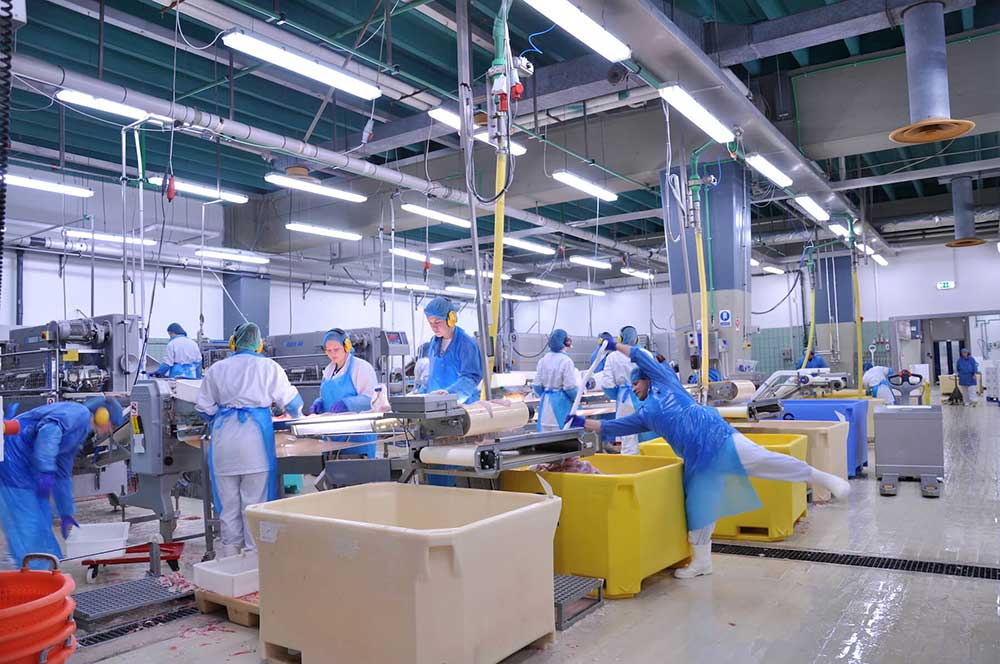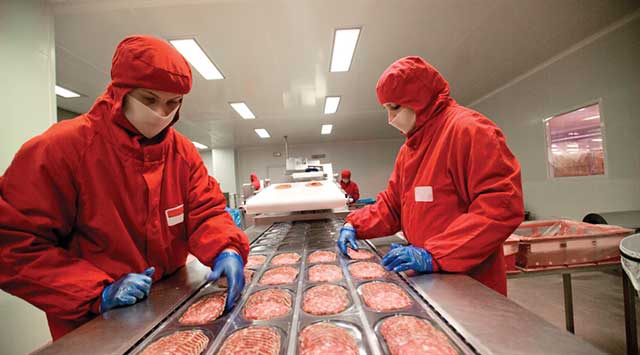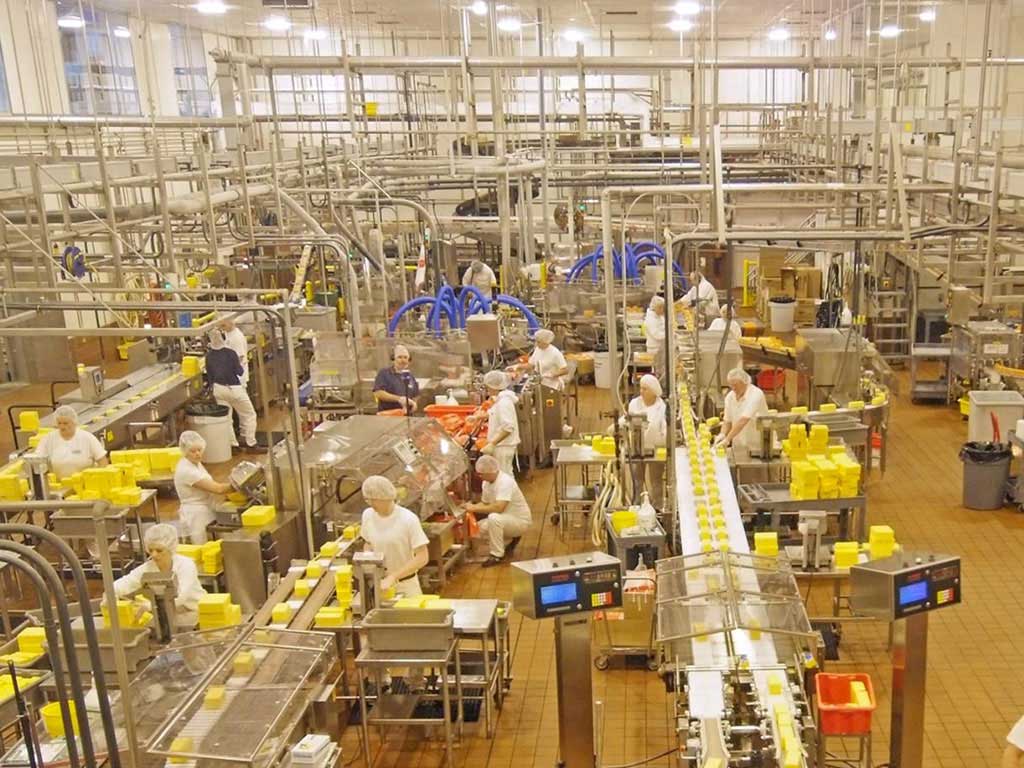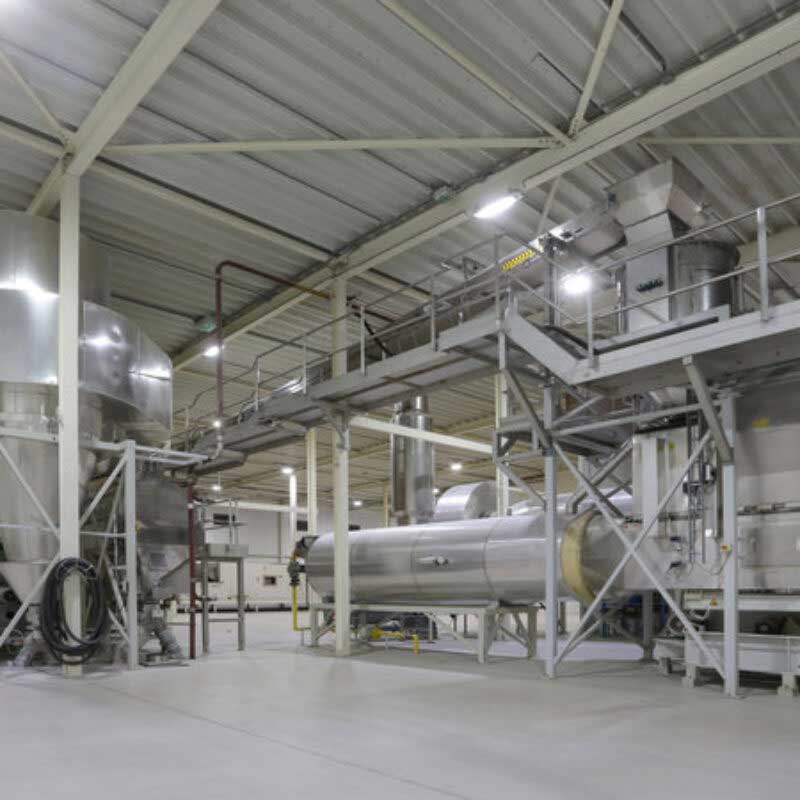Food Industry
 27/12/2022
27/12/2022The food manufacturing industry is not only related to people's livelihood, but has also increasingly become an important pillar industry for the development of my country's national economy. It is the first industry whose main business income at home and abroad exceeds 10 trillion yuan. The particularity of the food industry has stricter requirements on the lighting facilities of the food production workshop.

Reasonable lighting settings can not only provide sufficient light for workshop production, meet the needs of production and operation, but also effectively improve the work efficiency of workshop personnel. In addition, bright and comfortable workshop lighting can also enhance people's sense of security.
For a long time, except for many food factories, especially small and medium-sized food factories, the emphasis on lighting facilities has been lacking. The artificial light sources in some food factory workshops still stay on very traditional light sources, such as high-pressure sodium lamps, metal halide lamps, Even incandescent lamps, these light sources not only have outstanding features such as low luminous efficiency, high energy consumption, low waterproof level, short service life, and high operating costs, but also have safety risks of being explosive and fragile. Once product quality problems occur, it is very likely will endanger food safety.
For this reason, for the lighting facilities of food factory workshops, relevant departments have also formulated relatively strict standards to further regulate the lighting of food factories.Relevant departments also have different requirements for the lighting facilities of different types of food production enterprises in food factories, but in general it can be simply summed up as: first strong, second protection, third cleaning, and fourth inspection.

"One strong" means that the light intensity should meet the production and operation requirements of the indoor workshop, and at the same time, the light source should be able to present the true color of the processed ingredients.
For example, the processing table of a meat processing plant should be able to meet 220LUX; the acceptance table should be able to meet 540LUX; the pre-cooling room and passageway should be able to meet 110LUX, and the light should not change the color of the processed food itself. Light from lighting facilities must not prevent workers from inspecting and controlling contamination and identifying product defects.
This requirement not only has strong light brightness for lamps, but also has a high color rendering index.
"Secondary protection" refers to preventing the risk of foreign matter caused by broken lamps. Protective covers or explosion-proof lamps should be installed.
This requires food factories to avoid lamps and lamps that are directly exposed to the outside when purchasing workshop lamps, and to choose lamps with explosion-proof protective covers first, so as to avoid damage to personnel from lamps and lanterns, as well as damage to food processing raw materials, packaging materials, Semi-finished products, finished products, etc. cause pollution, and then food safety accidents occur.
Lampsuite adopts an integrated lampshade design. In addition to effectively avoiding safety problems in case of lamps bursting, it is also waterproof, dustproof, and anti-corrosion. It can be installed in workshops that are prone to moisture, such as bean products and aquatic product processing workshops. , meat pretreatment room, etc. It can also be installed in food production workshops with a lot of dust, such as grain processing workshops, starch workshops, and solid beverage workshops.

"Three cleans" refers to the formulation of a strict and standardized cleaning plan, and regular cleaning of lamps and lanterns.
For workshops with special dust-proof requirements, lamps that are prone to dust accumulation should be avoided as far as possible, so lamps with dust-proof properties and easy cleaning and maintenance should be preferred.
The Lampsuite lampshade not only has good sealing performance and can effectively prevent dust, but also has the characteristics of high light transmittance and high heat dissipation efficiency. It will not cause yellowing and discoloration of the lamp body after long-term use.

"Four inspections" means that lighting management should be included in the common equipment control inspection table established by the factory, and its integrity should be checked regularly, and inspection records should be kept.
Production is no small matter, and safety is more important than Mount Tai. For food companies, "food is the most important thing for the people", and food safety cannot be slack. In the daily equipment inspection of the factory workshop, regular inspections of lighting facilities are also required. Machinery and equipment need regular maintenance and repairs, and the same is true for lamps.
 +86 15061990229
+86 15061990229 info@lampsuite.com
info@lampsuite.com








